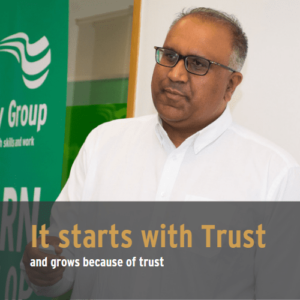To successfully scale a business, a founder must typically retrain their instincts.
I would even say that a founder’s usually infallible gut instincts can be a liability with scaling. There is no getting over it; scaling often is a complex and rigorous process which requires careful planning and a powerful team.
When a business is in its infancy, its leader will typically make decisions based on their instincts. The leader will draw on their knowledge and experience to generate and execute solutions. Instinctive type management often work well for a small, agile company, but if decisions are made with an instinctive leadership style during the complex process of scaling, in my view the business frequently suffers.
The leader or founder needs to stop making all the decisions themselves because they will not have time, and often may not be the right person to make every decision. This can be particularly challenging for an entrepreneur who is used to being involved in every move. But to scale successfully, giving up some level of control is vital. The leader who does not release some of his authority, risks becoming a bottleneck and ultimately leads to poor decisions.
Scaling demands that leaders put aside their visionary qualities, which often is not easy. Most entrepreneurs are not natural scalers; they enjoy autonomy and flexibility which are typically entrepreneurial qualities and the reason many enjoy the start-up phase. Scaling is primarily operational and administrative, and it takes time to put the systems in place, which is something you must accept if you commit to scaling.
I will conclude by saying I do not actually evangelise scaling your business as it is not necessarily the best route for everyone. It all starts with you, so it is essential to first achieve clarity on your “why”.











